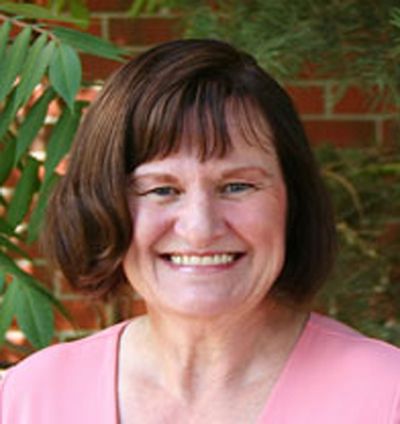Conference draws on ‘Power of One’
Sessions to focus on students from nontraditional families

When she was an elementary school teacher in Scobey, Mont., Deanna Peterschick Gilmore noticed that one of her students was always left out of playground games because she was the daughter of lesbian parents.
Gilmore did what she could to ensure the child was no longer ostracized at recess, but she felt powerless to do anything about the underlying prejudice.
Today, as a professor of literacy education at the University of Idaho, Gilmore believes literature can show children of alternative family structures that they are not alone.
“I found out what I could do to help teachers use such literature in the classroom,” said Gilmore. “The problem is so many are afraid to use them because of the flak they might get from parents. It is not fair to the child, who had no choice about how she was raised.”
This weekend, Gilmore will attend a leadership conference for gay, lesbian, bisexual and transgendered students known as “The Power of One.”
The conference, which began at Washington State University in 2004, is sponsored this year by WSU and UI. Sessions will take place on both campuses.
“It’s about providing space for LGBT students to come together to learn about leadership skills and see their own lives reflected,” said program co-chairwoman Rebecca Rod, of the UI Women’s Center.
Rod believes the today-through-Sunday conference will be a first for Idaho.
“Sometimes it takes the power of one to make some changes,” said Gilmore, who will attend a conference session on locating the stories of children with parents including those who are gay, lesbian, bisexual and transgender.
Gilmore, 67, who is heterosexual, the mother of four and grandmother of 12, said there are far too few children’s books that depict alternative family structures – single parents, blended families, children raised by grandparents or homosexual parents.
With nearly half of marriages ending in divorce, she said, “We need more works that demonstrate that no matter what the structure of a family is on the outside, there are many possibilities for happiness on the inside.”
A look at Barnes and Noble’s Web site shows 23 children’s books that depict gay and lesbian parent families at time when there are at least 8 to 10 million such families in the United States, Gilmore said. Another million gay and lesbian parents are applying for adoption, she said.
What children’s literature exists on gay and lesbian parenting is often suppressed by religious groups that keep the books perpetually checked out of libraries, effectively rendering them inaccessible to the public, Gilmore said.
“There are lots of misconceptions and myths that circulate regarding gay and lesbian issues and parenting,” Gilmore said.
For example, research shows no distinctions in the parenting abilities of gay, lesbian and heterosexual parents, nor differences in children’s mental health or social adjustment, she said.
Gilmore’s opinions are disputed by some Christian groups, including Mission America, a Columbus, Ohio, organization that opposes what it sees as an encroaching homosexual agenda.
Linda Harvey, president of Mission America, disagrees that there are not many books that depict gay and lesbian parents.
What’s missing, she said, are books that deal with homosexuality from a traditional or Christian perspective.
The fact that children of gay and lesbian parents feel isolated “is very sad,” Harvey said, “but we make another mistake on top of that to basically bless this lifestyle with positive depictions.”
Gilmore believes school administrators should begin conversations about how teachers can use children’s literature that reflects gay and lesbian parenting in a positive light.
Such material, she said, can be presented to children in a manner that is not threatening to those opposed to homosexuality.
Some works, such as “Who’s in a Family?” by Robert Skutch and Laura Nienhaus, may be more amenable to those with religious objections to homosexuality, Gilmore said.
The book describes the wide range of contemporary family units. The book, said Gilmore, concludes that the description of any kind of family is simple: “The people who love you the most.”